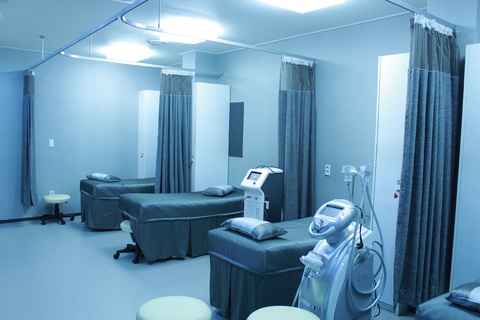Patients who stay in hospital smart rooms experience quick, easy, and stress-free access to care and treatment, according to the NHS. Smart rooms are a key part of the NHS’s plans for the future of healthcare. The rooms, which are available in a handful of hospitals, are fitted with technology that allows staff to monitor and communicate with patients remotely. This has the potential to provide a range of benefits, including increased safety and better outcomes for patients, including the following.
Patients are in control
Patients are in control of their own care. They have the ability to customize their room with the amenities they want, such as a television, a laptop, a table, and chairs, or even a bedside commode. They are also in control of their own schedule, so they can arrive the day before their surgery to arrange the room to their liking or even to have a family member visit overnight.
Patients are empowered to be in control of their own care, while hospital staff can focus on the care they deliver. Smart rooms use sensors to monitor patients, allowing them to take a more active role in their own recovery. For instance, a patient in a smart room can be given the ability to control their own lights, entertainment, and health monitoring.
Hospital efficiency is increased
The demand for healthcare is growing within the private and public sectors. However, many challenges in healthcare facilities are becoming apparent. This is leading to an increasing need for efficiency, not just in the process of care but also in the facility itself. This is where smart hospital rooms come into play.
The patients are more comfortable and efficient in the smart rooms, i.e., the smart rooms in the hospital have the facility of temperature control, humidity control, air filtration system, and the light intensity can be adjusted automatically. The smart rooms in the hospital save a lot of time and cost for the hospital since there is no requirement for manual control of the temperature, humidity, and air filtration.
Better planning
Planning a hospitalization is stressful enough as it is, but when you factor in the cost and the limited number of beds, the stress can become even greater. Doctors and hospitals can be better prepared to deal with this stress by having the ability to visualize the hospital bed utilization in real-time. This is where a hospital bed management system comes in. They give doctors and hospitals the ability to manage their resources in real-time and ensure that they can provide the best care for their patients.
A smart room has a room controller that is connected to the main system. This means it can be used to plan with better accuracy. The controller can inform the main system of its current occupancy in real-time. This helps the planning team to know if the current capacity of the room is being used to its full capacity or if the room is underutilized. The planning team can then plan the work schedules based on the number of rooms needed.
A hospital can be a scary place for a patient. With a lot of people around them and a lot of commotion, patients can feel stressed out. They are also worried about their bills, the procedures, and everything else. So, how does a hospital room come into play? A hospital room can help make the stay a lot more pleasant. It can help ease the stress, and it can give patients assurance of their bills and other things. These rooms are designed to be the most comfortable place a patient can be in. Some of the features of these rooms include a bed, a bathroom, and a lot of space. These rooms can be customized to meet the needs of the patients. For example, the windows can be designed to help patients feel relaxed.
Improved clinical outcomes
Hospitals are the places that we all go to when we need to be cured, and these days, hospitals also provide us with a wide range of amenities and services. One such service that is being introduced in hospitals is the smart hospital room. Hospitals are taking advantage of the fact that technology has made such rapid progress and are utilizing it to make the lives of patients and doctors much smoother.
Hospitals, doctors’ offices, and outpatient care settings are using advanced technologies and services to make sure patients get the most out of their healthcare experience. The healthcare industry is striving to use technology to improve clinical outcomes, reduce costs and create an engaging experience for patients.
Stream real-time patient data
Many hospitals and clinics are now using smart rooms that are connected to the internet. This allows doctors and hospital staff to have immediate access to patient data. The smart rooms have cameras, computers, printers, and scanners that can be used to produce medical records and reports. Patients can even be monitored remotely. There are also control panels that allow doctors to adjust the temperature, lighting, bed position, and entertainment options. The smart rooms are used to help doctors provide better care to their patients and to help reduce waiting times.
Informed decisions are made
Doctors and nurses, and other staff members need to make many decisions every day, and they can’t be successful if they don’t have the right information. Smart room technology gives staff access to the right information at the right time and allows them to track patient data and information in real-time. When staff members have the right information at the right time, they can make better decisions – and ultimately, they can make a difference in the lives of their patients.

